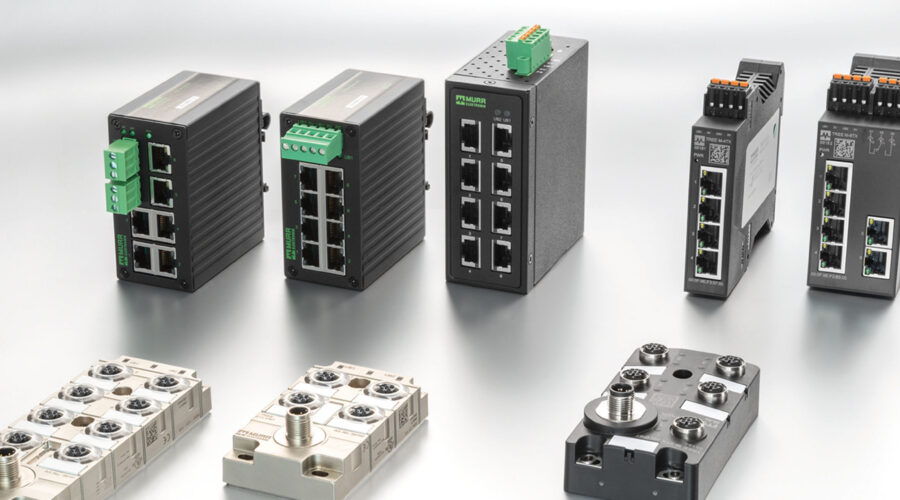Industrial Ethernet switches are specialized network switches designed for industrial applications. As an integral part of the Industrial Internet of Things (IIoT), they provide reliable and secure connections for distributed systems in mission-critical environments. But if you’re new to industrial networking, the world of industrial Ethernet switch can be overwhelming. In this article, we’ll break down the basics to help get you started. We’ll go over what industrial Ethernet switches are, how they work, and how they can help your network.
What are industrial Ethernet switches?
Industrial Ethernet switches are designed for harsh environments and offer a variety of features to help keep your network running smoothly. Here’s a quick overview of what they are and how they can help you:
– Industrial Ethernet switches are built to withstand extreme temperatures, vibrations, and other conditions that would damage standard networking equipment. This makes them ideal for use in industrial settings where traditional networking gear might not be able to handle the conditions.
– Many industrial Ethernet switches also offer redundant power supplies and/or connectivity options, which can provide added peace of mind in mission-critical applications.
– Advanced management features on some industrial Ethernet switches can make it easier to monitor and troubleshoot your network. These same features can also help you optimize performance by automatically adjusting settings based on real-time conditions.
How do industrial Ethernet switches help your network?
Industrial Ethernet switches help your network by providing a dedicated, reliable connection for your critical industrial applications. By segregating your industrial traffic from your other office and business traffic, you can be sure that your mission-critical data and devices are always online and available.
In addition, industrial Ethernet switches are designed to withstand the harsh conditions found in many industrial environments. This means that they can operate in extreme temperatures, vibration, and shock, and can also resist dust, water, and other contaminants. This ensures that your network will continue to function properly even in the most challenging environments.
Different types of industrial Ethernet switches
There are three main types of industrial Ethernet switches: Managed, Unmanaged, and Smart.
Managed Switches: A managed switch is a network switch that can be configured and monitored through software. This type of switch is typically used in larger organizations where there is a dedicated network administrator. The advantage of using a managed switch is that it allows for greater control over the network. For example, a administrator can set up Quality of Service (QoS) rules to prioritize certain types of traffic or limit access to certain parts of the network.
Unmanaged Switches: An unmanaged switch is a plug-and-play device that does not require any configuration. These switches are typically used in small networks or in situations where there is no dedicated network administrator. The main advantage of using an unmanaged switch is that it is very easy to set up and use.
Smart Switches: A smart switch is a type of managed switch that has some advanced features such as the ability to monitor traffic and automatically configure itself. Smart switches are typically used in large organizations where there is a dedicated network administrator. The advantage of using a smart switch is that it provides more control over the network and can be configured to automatically optimize the network for different types of traffic.
Pros and cons of using industrial Ethernet switches
There are many different types of Ethernet switches available on the market, each with their own set of pros and cons. When choosing an Ethernet switch for your industrial network, it is important to evaluate the specific needs of your application and choose a switch that will provide the best performance and reliability for your particular setup.
One type of Ethernet switch that is gaining popularity in industrial applications is the industrial Ethernet switch. Industrial Ethernet switches are designed to withstand harsh environments and offer a higher level of reliability than standard consumer-grade switches. Here are some of the pros and cons of using an industrial Ethernet switch in your network:
Pros:
- Industrial Ethernet switches are designed to operate in harsh environments, making them ideal for use in factories or otherindustrial settings.
- These switches offer high levels of reliability and uptime, thanks to their robust construction and advanced features.
- Many industrial Ethernet switches come with built-in security features, such as port authentication and data encryption,to help protect your network from unauthorized access or intrusion.
Cons:
- Industrial Ethernet switches can be more expensive than traditional consumer-grade switches.
- These switches may have more features than you need for a smaller network, making them less cost-effective formid-sized or enterprise networks.
How to choose the right industrial Ethernet switch for your network
There are a few things to consider when choosing the right industrial Ethernet switch for your network. Here are a few tips:
- Determine your needs. What kind of traffic will be flowing through the switch? How much data will be transferred? What are your latency and jitter requirements?
- Select the right port type and speed. Industrial Ethernet switches come with a variety of port types and speeds. Make sure to select the right ones for your needs.
- Consider manageability features. Some industrial Ethernet switches come with special features that make them easier to manage, such as web-based management interfaces or support for SNMP (Simple Network Management Protocol).
- Compare prices. Prices can vary widely between different models and brands of industrial Ethernet switches. Be sure to compare prices before making your final decision.
Conclusion
Industrial Ethernet switches are essential for any industrial network. They help ensure that the network remains reliable, secure and efficient by providing features such as PoE (Power over Ethernet), VLANs (Virtual Local Area Networks) and security measures such as Access Control Lists and Layer 2 authentication. As a beginner, understanding these concepts is important to setting up an effective Industrial Ethernet Switch system in your business. We hope this guide has provided you with a better understanding of Industrial Ethernet Switches, allowing you to choose the one that best suits your needs.

